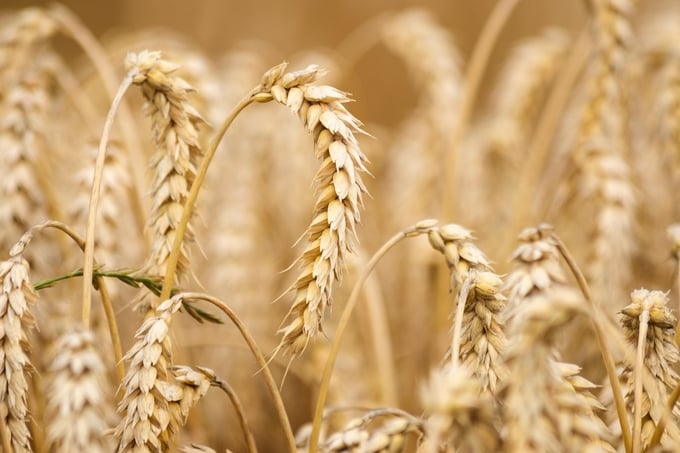June 16, 2025 | 09:40 GMT +7
June 16, 2025 | 09:40 GMT +7
Hotline: 0913.378.918
June 16, 2025 | 09:40 GMT +7
Hotline: 0913.378.918

Wheat on a field before the harvest. Credit: Leibniz-Zentrum für Agrarlandschaftsforschung (ZALF) e.V
In a recent article published in the journal Nature Plants, the authors used simulation experiments to show that nitrogen fertilization in wheat cultivation will have to increase up to fourfold in the coming years to exploit the yield potential of the varieties and feed the growing world population. However, this increased amount of nitrogen would have a negative impact on ecosystems in the agricultural landscape. Researchers from the Leibniz Centre for Agricultural Landscape Research (ZALF) were involved in the study.
The authors of the study advocate the development of strategies to improve nitrogen uptake in wheat crops. In wheat, only 48% of the fertilizer applied is taken up by the crop. The rest of the applied nitrogen, a large proportion, leaches into the soil or is emitted into the air. This excess nitrogen fertilization pollutes water quality, leads to high greenhouse gas emissions and is a major driver of biodiversity loss.
In this study, simulation models were used for the highest-yielding wheat varieties to model potential yield increases and associated nitrogen requirements. Different climate change scenarios were applied to the world's major wheat growing regions. The study was co-authored by Prof. Frank Ewert and Prof. Heidi Webber. Other ZALF scientists contributed models and calculations to the study. These include Prof. Kurt-Christian Kersebaum, Prof. Claas Nendel, Dr. Amit Kumar Srivastava and Dr. Tommaso Stella.
"Our results show that we need to focus primarily on ensuring that nitrogen is available to plants in the soil and can be efficiently absorbed by the plants. This has a major impact on the yield potential of wheat, but also on the environment. In view of the negative effects of excess nitrogen on the climate and the environment, we cannot increase fertilizer application any further, but must think about alternatives," says Prof. Dr. Frank Ewert, Scientific Director at ZALF and co-author of the study.
Among the solutions discussed by the authors is the breeding of wheat varieties that better absorb and utilize nitrogen. Other farming practices are also needed, such as combining wheat with legumes that can produce nitrogen from the air with the help of nodule bacteria. However, none of these solutions alone will enable the necessary intensification of wheat production. What is needed is a sensible integration of agronomic, genetic and socio-economic factors.
Wheat is the world's most important crop. As the world's population grows and economic growth increases, so too will the demand for wheat. At the same time, the world's arable land is limited. In addition, agriculture must reduce its negative impact on the climate and the environment if it is to continue to feed the world. Climate change adds to these challenges. Sustainable solutions require consideration of the entire agri-food system.
(Phys)

(VAN) Extensive licensing requirements raise concerns about intellectual property theft.

(VAN) As of Friday, a salmonella outbreak linked to a California egg producer had sickened at least 79 people. Of the infected people, 21 hospitalizations were reported, U.S. health officials said.

(VAN) With the war ongoing, many Ukrainian farmers and rural farming families face limited access to their land due to mines and lack the financial resources to purchase needed agricultural inputs.

(VAN) Vikas Rambal has quietly built a $5 billion business empire in manufacturing, property and solar, and catapulted onto the Rich List.

(VAN) Available cropland now at less than five percent, according to latest geospatial assessment from FAO and UNOSAT.

(VAN) Alt Carbon has raised $12 million in a seed round as it plans to scale its carbon dioxide removal work in the South Asian nation.

(VAN) Attempts to bring down the price of the Japanese staple have had little effect amid a cost-of-living crisis.